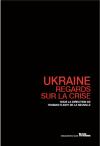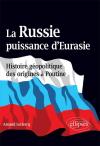Most Mideast HNWIs "lacksuccession plan for familybusiness"
A majority of high-net-worth individuals (HNWIs) in the Middle East are aware of the importance of effective succession planning, but do not have a wealth succession plan in place for their family businesses, a report said.
Given the outsized economic contribution of family-run businesses in the Middle East, strong family governance is critical for the region’s continued economic success, according to the second instalment of its Middle East Investment Survey released by Lombard Odier, a leading global wealth and asset manager.
However, whilst 87% of the 300 HNWIs surveyed believe their family business is structured to allow for efficient intergenerational wealth transfer, only 24% say they already have an estate plan in place for all of their private assets.
The difference between younger and older business owners is significant. Over half of older respondents (55%) say they have a full estate plan in place, compared to just 9% of younger respondents. Conversely, more than one third of younger respondents (36%) do not have any kind of estate plan in place at all but are interested in it, while a further 26% expressed no interest. The remaining respondents have a partial estate plan in place.
In a region where family is the dominant social institution, the wealth of HNW individuals is often intertwined with their family business, its governance and Islamic values. This topic of family governance reveals a discrepancy between younger and older HNWIs: 66% of older business owners said they had a formal and rigid system of governance in place, compared to 50% of younger respondents.
Younger HNWIs also show a greater degree of openness to change: nearly half (45% vs. 28% older respondents) say they have a formal and flexible system of governance, evolving over time to reflect their family's values.
A lesser degree of divergence is found in HNWIs’ views on Islamic values. Having a succession plan that complies with Sharia principles is important for two thirds (67%) of respondents, with a tilt towards older respondents (74% vs. 62% younger respondents). This was also found to increase with wealth: 79% of those with more than USD 10 million in assets say that Sharia principles are important to them, versus 61% of those with assets between USD 1 million – USD 3 million.
Yet a consensus was revealed between the respondents on the geographical placement of family wealth. The overwhelming majority (90%) intend to keep their wealth in the region for the foreseeable future.
Commenting on the findings, Arnaud Leclercq, Partner Holding Privé and Head of New Markets at Lombard Odier, said: “The results of our survey reveal several important factors in the realm of succession planning amongst HNWIs in the Middle East. Chief among them is a consensus that intergenerational wealth transfer is of great importance, yet an absence of estate planning across both older and younger respondents is also present.”
“The findings around geographical wealth placement are encouraging though, with a majority of respondents planning to preserve their wealth in the region, reflecting positively on the Middle East’s investment environment. At Lombard Odier, we will continue to encourage wealthy individuals to prepare for their family’s future by delivering tailored wealth planning solutions structured around their specific objectives.
“As our 50-year legacy in the region has demonstrated, we have an ongoing commitment to providing Middle East families with trusted banking and wealth planning solutions,” he added.








